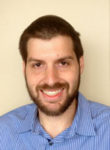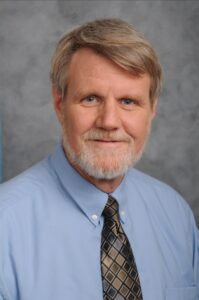By Jacob Kamaras


SAN DIEGO — Local Jewish high school students and their parents had the chance to learn about a unique option for pursuing higher education in Israel during a visit to San Diego last week by Prof. Chaim Sukenik, President of the Jerusalem College of Technology (JCT).
Prof. Sukenik visited SCY High School (for boys) and Torah High School (for girls) to raise awareness about JCT’s International Program in English. He also held an informational session at a private home for parents from both schools.
The International Program offers English-speaking students from around the world the opportunity to obtain a prestigious academic degree, coupled with immersive Torah study. JCT recently introduced a new approach that offers affordable options for international students to pursue careers in high-demand fields in the Israeli workforce, such as engineering and nursing, thereby boosting their chances for employment after graduation. International Program students who are not Hebrew proficient can now complete their core science courses (with instruction taking place in English) over the course of two academic years instead of one, giving them sufficient time in their schedule to also study in ulpan (intensive classes in Hebrew language).
The new tracks in engineering and nursing, as well as in health sciences for students seeking to enroll in medical school, mark a dual expansion for the International Program from both linguistic and academic perspectives. The program previously only offered instruction in English, and in the disciplines of computer science and business. By broadening its offerings in this manner, JCT is setting up international students for greater success in a Hebrew-speaking workforce if they wish to remain in Israel after graduation — including by helping them better understand medical terminology in Hebrew, which improves their ability to serve Israeli patients.
JCT’s approach resonates strongly with Rabbi Michoel Peikes, Dean of Torah High School, who explains that “so many students spend a gap year in Israel and would love to attend college in Israel.” According to Rabbi Peikes, 10 Torah High School alums who graduated last year are currently studying in seminaries in Israel, and most of them would prefer to remain in Israel for college, as “they just fall in love with Israel in a different way than they would by visiting.”
Yet at the same time, there is still a bias toward pursuing an American education. Rabbi Peikes cites the example of one Torah High School student who is seeking a career in nursing but would not be comfortable with instruction conducted in Hebrew. The new option of ulpan at JCT’s International Program opens doors for various students in her situation, and similarly for students in engineering, computer science, business, and premedical studies, Rabbi Peikes says.
He says that for several seniors at Torah High School who had previously assumed that they would attend college in the U.S. following their gap year in Israel, the meeting with Prof. Sukenik began to change their perspective.
The devastation of the October 7 Hamas massacre has also “drawn us closer to Israel and makes us want to be there,” says Rabbi Peikes.
“Our students are not afraid of the American campuses [due to rising antisemitism], but rather they’re in love with Israel and they would love to stay there after seminary, and now the new tracks at JCT are opening up so many opportunities for them,” he says, adding that “the goal is not just to survive in college. You want to thrive.”
In addition to the new academic tracks that include ulpan, JCT has also recently upgraded the Torah study and social components of its offerings for international students “in an effort to create an environment that’s friendly for American students in Israel,” Prof. Sukenik says.
JCT announced in January that Rabbi Shalom Rosner will assume the position of head of English Judaic studies for students at its men’s campus. By bolstering its Shiurim (lectures) and overall Judaic studies program through the addition of Rabbi Rosner, JCT has taken a major step toward establishing a high-level Torah study environment that mirrors its Hebrew-language Beit Midrash in English. Rabbi Rosner, who will begin his new role in September 2024, has been a leading figure in Israel’s Torah study space for the past decade at Yeshivat Reishit Yerushalayim and most recently at Yeshivat Kerem B’Yavneh.
Meanwhile, a new partnership between JCT and the Orthodox Union’s Jewish Learning Initiative on Campus (JLIC) program is striving to ensure that students enjoy a home-away-from-home in the heart of Jerusalem by building a robust social life on campus. Rabbi and Rebbetzin Simcha and Margalit Herschman are the inaugural JCT-JLIC couple tasked with launching the program, which is being offered in Jerusalem for the first time. Since 2001, the OU-JLIC program has helped students observe key aspects of Jewish life across 32 campuses in the U.S., Canada, and Israel, by creating Jewish learning and social opportunities as well as Shabbat and holiday programming.
Given today’s rising antisemitism on U.S. campuses, Prof. Sukenik believes it is now a more appropriate and compelling proposition for Israeli academic institutions to create novel strategies for facilitating the enrollment of American students.
“The time was right for us to launch this hybrid model and to broaden our offerings, in the realms of academics, social life, and Torah learning,” Prof. Sukenik says. “This dramatically increases the options that we provide for international students.”
Rabbi Peikes says students and parents “really appreciated the visit” by Prof. Sukenik, noting how they gained insights into the symbiotic relationship between academics and Judaic studies.
“It was very eye-opening to the girls — the presentation on how having an advanced education in Torah studies also provides them with unique abilities in science,” he says.
*
Jacob Kamaras, the former editor of San Diego Jewish World, is a freelance writer and public relations professional.